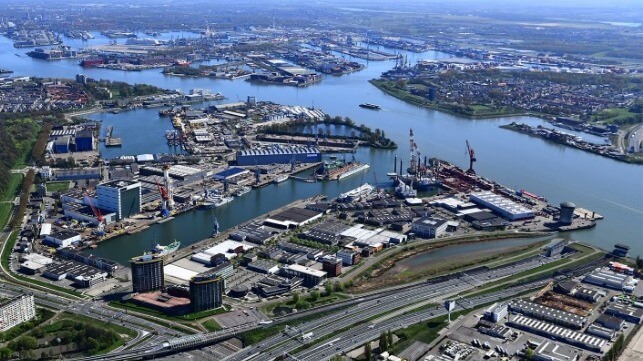Belgium Plans Increased Fight Against Drug Trafficking Through EU Ports

Belgium intends to prioritize the fight against drug trafficking through the major ports in the European Union (EU) expanding on existing efforts to reign in the rampant smuggling and corruption at the region’s ports. Over the next six months, they plan to launch an increased effort to work in close collaboration with governments of key South American and Latin American nations that are the main sources of illegal drugs.
The Belgian government, which holds the Presidency of the Council of the EU starting on January 1 until June 30, 2024, recognizes that the logistic hubs are being used by organized drug cartels to traffic narcotics into member countries. Interpol and other law enforcement agencies have highlighted efforts by the cartels to infiltrate port operations to facilitate the smuggling of illegal drugs. Major ports including Antwerp and Rotterdam are experiencing increased smuggling efforts. Rotterdam, for example in August 2023 reported its largest-ever seizure of over 8,000 kilo packets of cocaine. Spain and Ireland also reported record-breaking seizures in 2023.
The drug initiative was part of an aggressive agenda for the Council launched by Belgium this week. The focus of the effort that Belgium plans to lead will be on ensuring that Eurojust, the European Union Agency for Criminal Justice Cooperation, works closely with its judicial partners in third countries particularly in South and Latin America from which large-scale illicit exports of drugs take place. The agency, which is coordinating European governments’ efforts to tackle serious cross-border crime, will build on a network of over 70 Contact Points worldwide and its counterparts in Latin America to stop the use of EU hubs and ports to traffic drugs.
Belgium intends to leverage the European Commission’s comprehensive roadmap that was launched in October last year and is designed to intensify efforts to combat drug trafficking and criminal networks in European ports. Part of the roadmap entails allocating more than €200 million ($219 million) to fund state-of-the-art equipment that can help customs authorities scan containers and check imports for hidden consignments of illicit drugs or drug precursors.
The European Commission is already negotiating international agreements with Argentina, Brazil, and Colombia to extend cross-border judicial cooperation. These measures will further enable collaboration via Eurojust in tackling major organized drug crimes.

that matters most
Get the latest maritime news delivered to your inbox daily.
“Tackling large-scale drug-related organized crime groups using logistic hubs and, more specifically, large ports is the top priority,” said Hilde Vandevoorde, National Member for Belgium at Eurojust. “As this crime type always has a major cross-border aspect, the role of Eurojust is essential in helping EU Member States and third countries to cooperate.”
Belgium’s commitment to prioritize the fight against drug trafficking via major ports comes at a time when the bloc is becoming increasingly worried about the surge in the vice and other drug-related crimes. Drug cartels have turned Europe’s seaports as key entry points for illicit drugs, with massive busts of cocaine happening in Antwerp, Rotterdam, Algeciras, and other ports in recent months. In 2021, a record-breaking 303 tonnes of cocaine were seized in the bloc.
